Are you tired of waiting for that overdue payment? Crafting the perfect letter to request a payment deposit can make all the difference in getting your finances back on track. In this article, we'll explore effective tips and a handy template to help you communicate your needs clearly and professionally. So, let's dive in and empower you to take charge of your payments!
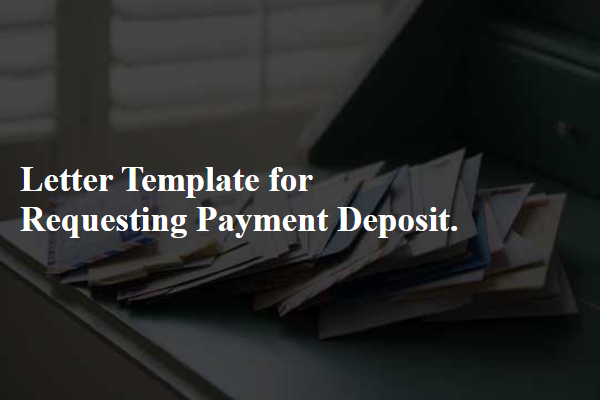
Polite and professional tone
In the realm of business transactions, securing timely payment deposits is crucial for cash flow stability. A payment deposit (typically 20-50% of the agreed total) ensures commitment from clients while covering initial project expenses, such as materials and labor. Clear communication is essential, particularly in service agreements for industries like construction, consulting, or events. Including specific details such as the deposit amount, payment methods (bank transfer, credit card), due dates, and consequences for late payments can enhance clarity and reinforce professionalism. Proper documentation of such requests can safeguard both parties and foster trust within the business relationship.
Clear payment details
A payment deposit request should clearly indicate the necessary financial information for efficient processing. Specify the total amount due (e.g., $1,500) alongside the due date (e.g., October 31, 2023) to avoid confusion. Include banking details for the transaction, such as the beneficiary name (e.g., ABC Corporation), account number (e.g., 123456789), and bank name (e.g., City Bank). Provide a breakdown of the deposit's purpose, linking it to specific services or products (e.g., initial fees for an event scheduled on November 15, 2023). Reinforce the importance of timely payment (e.g., to secure reservation) while encouraging follow-up communication for any inquiries regarding the payment process.
Due date and deadlines
Payment deposits are essential for securing services and ensuring timely project initiation. A typical due date for payment deposits often occurs 30 days prior to the start date of the contracted work, depending on the agreement's terms. Failure to provide the deposit by this deadline may result in project delays or cancellation, particularly in competitive industries like construction or event planning. Clients should clearly understand the consequences of missing deadlines, which often include additional fees or rescheduling challenges, influencing overall project timelines. Establishing clear expectations and communication regarding payment deposit deadlines can enhance project efficiency and maintain professional relationships.
Reference to previous agreements
A payment deposit request can emanate from established agreements, specifically those documented during previous transactions such as contracts or invoices. An example includes a signed contract dated April 15, 2023, which stipulated a 30% advance payment on total project costs. This agreement supports the necessity of the deposit, facilitating project initiation, especially for services provided by design firms in urban areas like New York City or for construction projects involving contractors. Prompt payment, typically within a ten-day frame, ensures smooth progress and resource allocation, essential in high-demand industries.
Contact information for queries
Payment deposits are essential for securing services, often required in the hospitality industry, event planning, or rental agreements. A standard practice involves a specified amount, typically 20% to 50% of the total service cost, paid upfront. This deposit confirms the reservation and protects against last-minute cancellations. Contact information, like phone numbers or email addresses, should be clearly listed for any inquiries related to the payment process. For example, providing a direct line to the accounting department can facilitate quicker responses and clarification. Proper communication ensures a smooth transaction process for both parties involved.

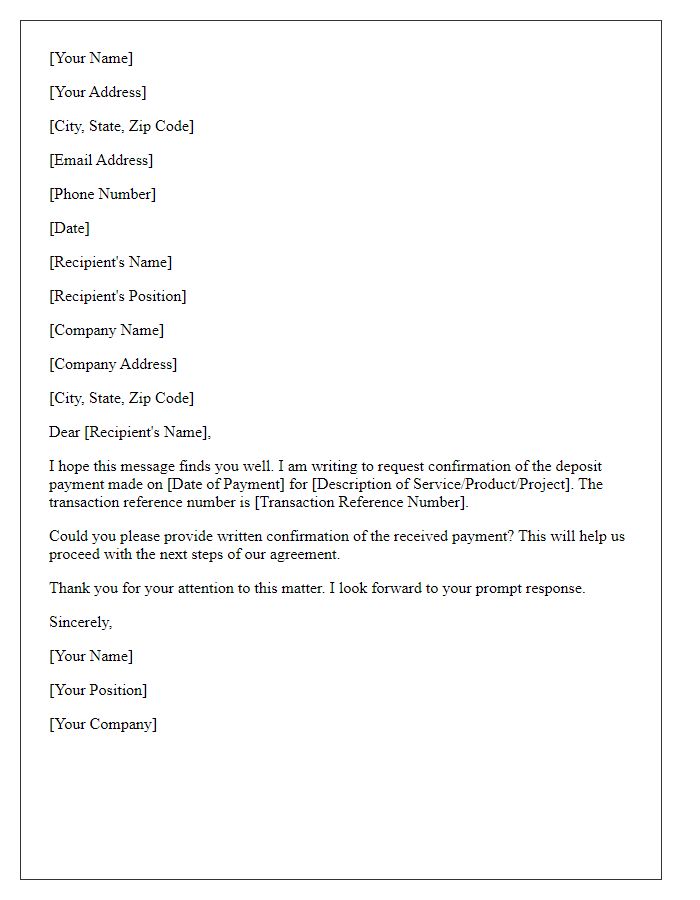
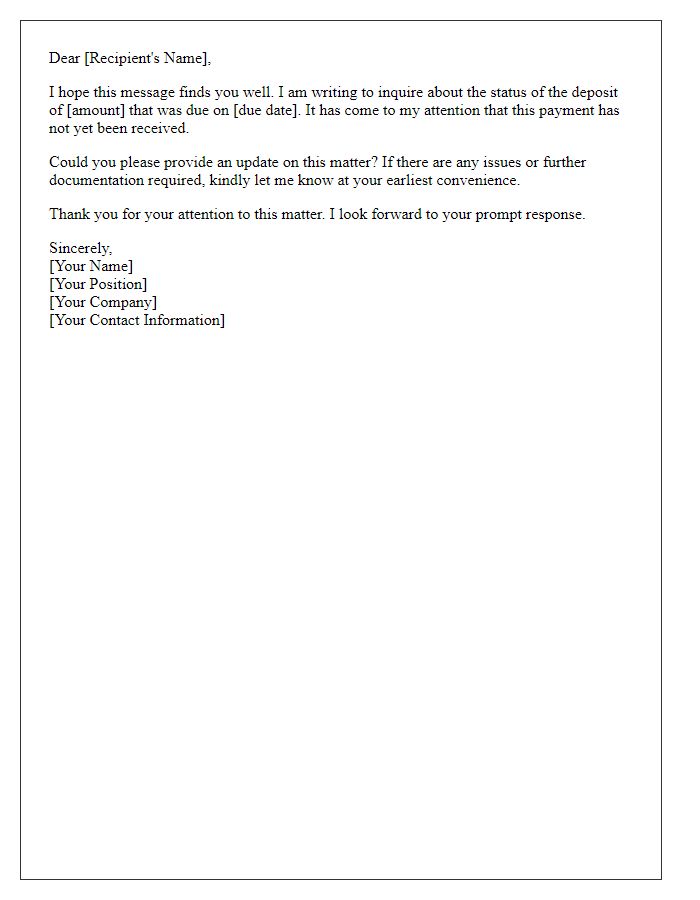
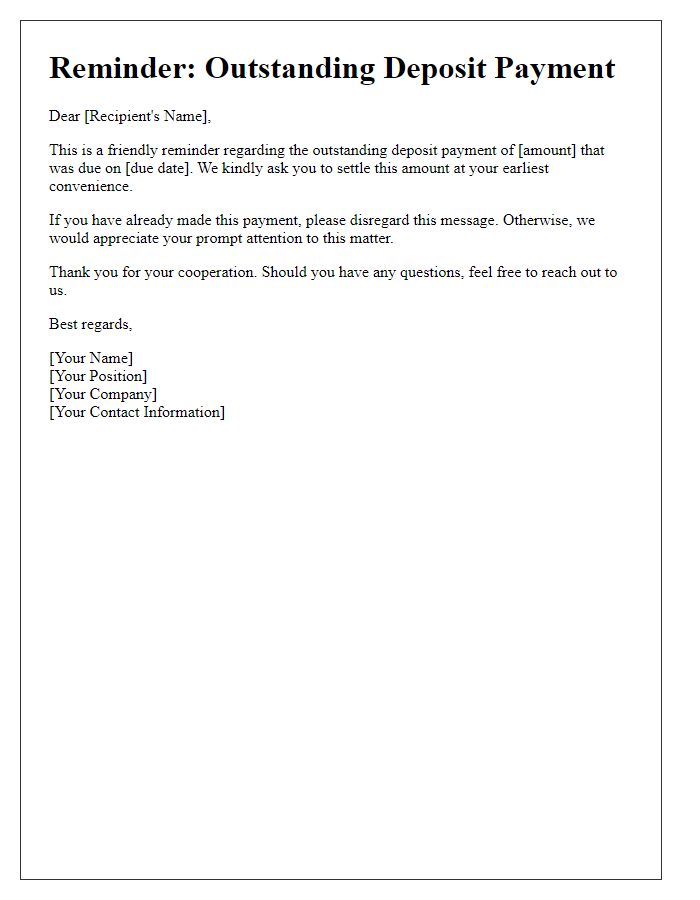
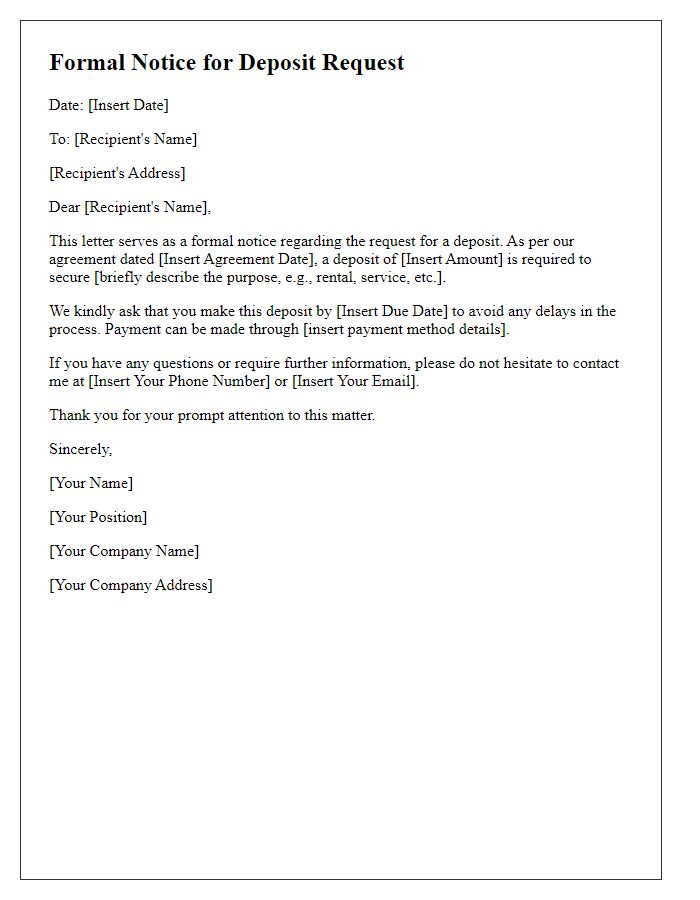
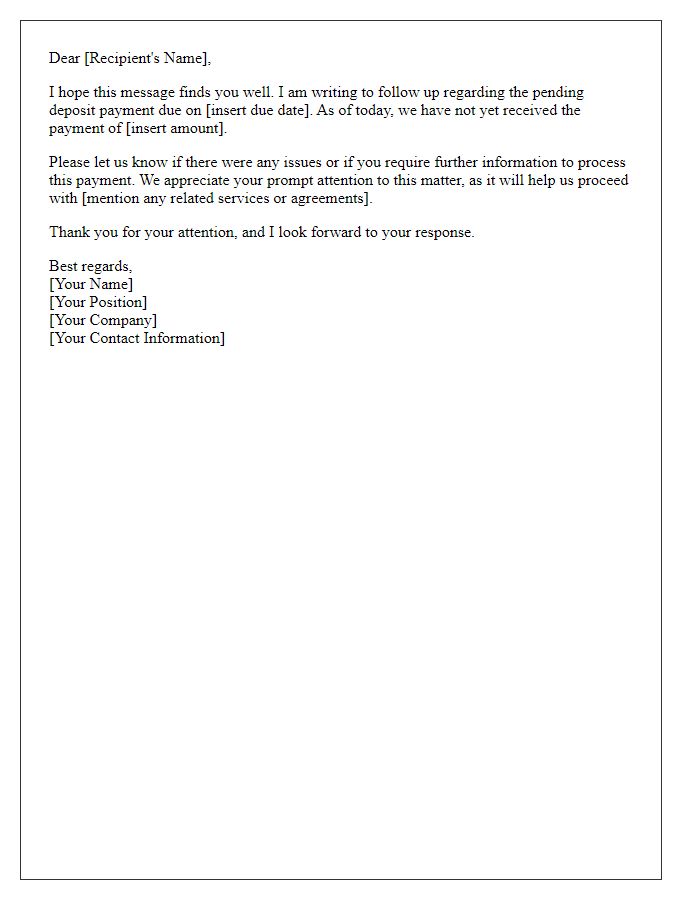
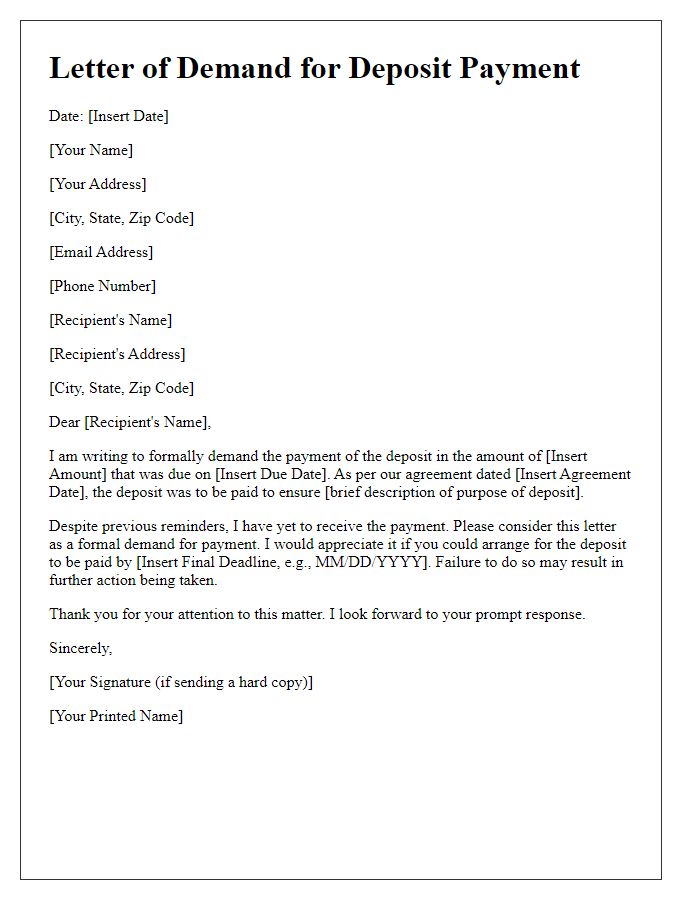
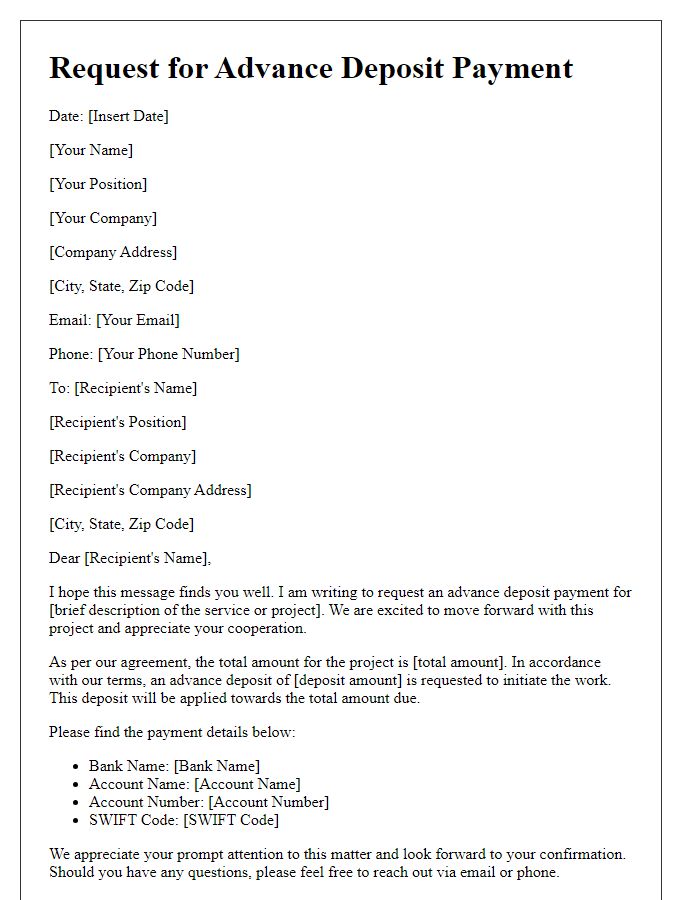
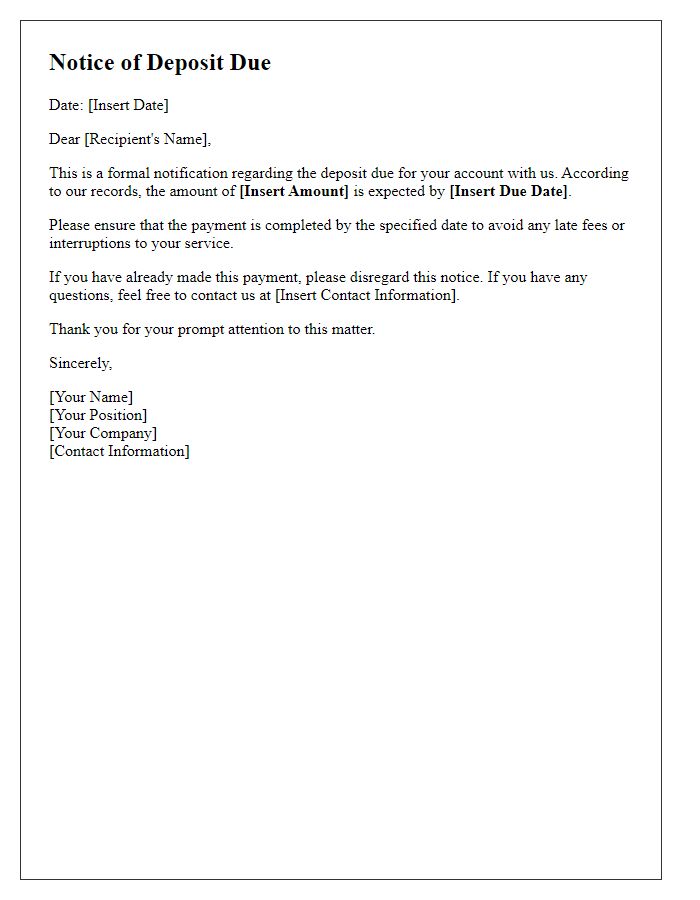
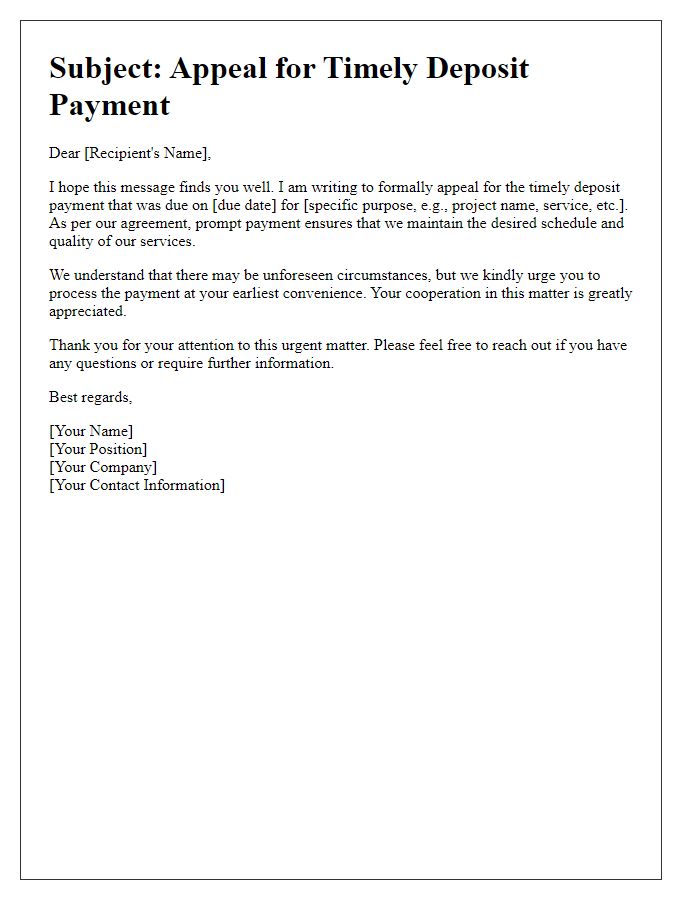
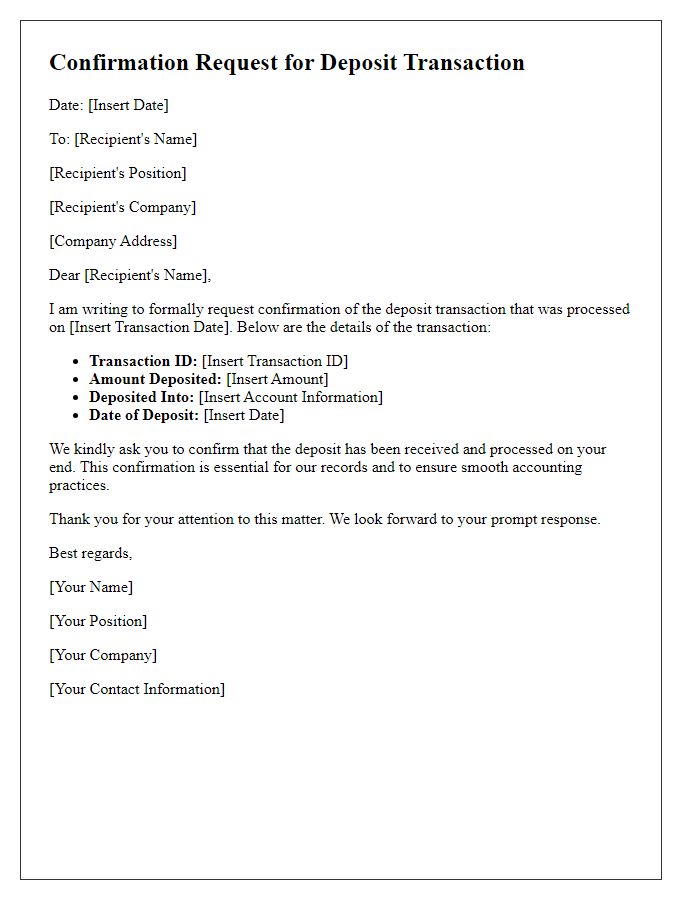

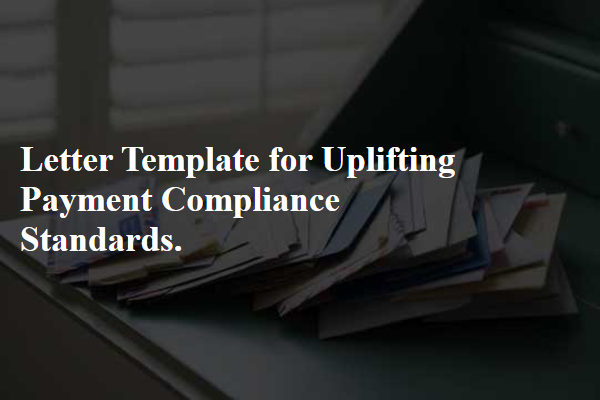
Comments